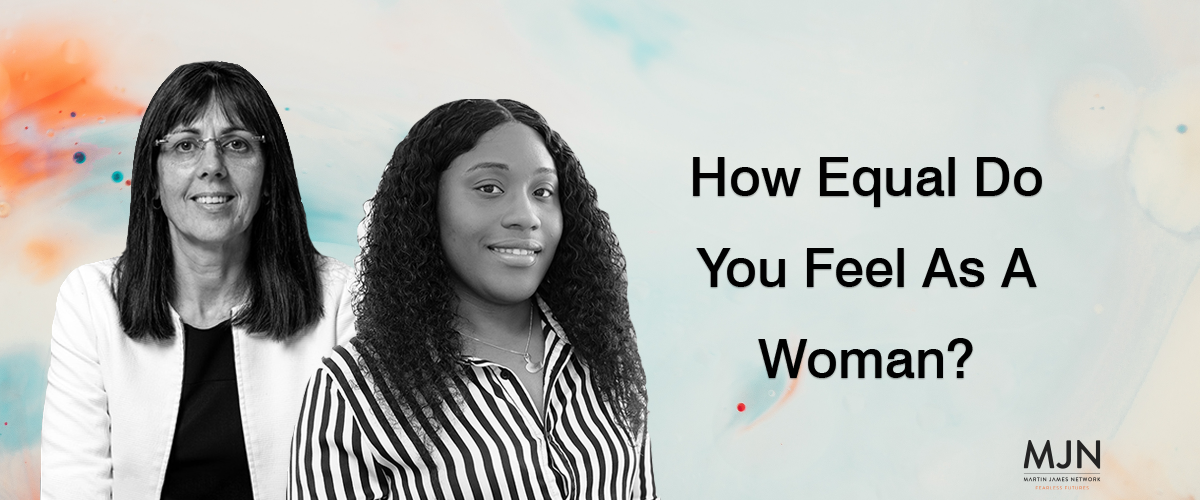How equal do you feel? That was the question tackled by Woman’s Hour as part of its 75th anniversary. It was fascinating to hear the stories from callers talking about their own lived experiences from over the decades of times when they had or hadn’t felt equal, not just in the workplace but at home as well. Research commissioned by BBC Radio 4 Woman’s Hour showed 75% of women feel most unequal in their own homes and 70% feel pay and benefits are still not equal, which shows we still have some distance to go.
One caller raised an interesting perspective that we should be transparent with today’s generations about the struggles they may still have to face in the future with regards to equality. However, from the work we do in the Martin James Network, we look to educate young people to be whatever they want to be by offering support and help to prepare them for the barriers that can fall and the equality gap they might experience.
As well as highlighting that more support is needed for women, the importance of role models was also raised in the discussion. The Network applauds all women who are role models, lead by example and empower everyone to rise regardless of their background. One such example from our Network is Rachel Cole, Operations Director at Foster Talk, who published her first set of children’s books as part of her ‘Amazing Bodies’ series earlier this year. She grew up in a household where reading was embedded in her daily routine. Her dad would read stories every night which sparked her inner writer as she grew into a teenager. Rachel’s interest in creating stories and poems renewed when she gave birth to her daughter; her curious mind inspired Rachel to help her learn new things.
Rachel’s ambition was to create stories that readers could connect with, and see characters that look like themselves. Representation is close to her heart so the ‘Amazing Bodies’ books celebrate culture, diversity, and learning whilst leaning into curiosity and imagination through interaction. She shares: “Children must have aspiration and believe they can achieve anything they put their minds to; the books were created to plant the seed of hope and ambition.”
So many callers into Radio 4 shared positive experiences of how they were raised in families where they were told anything is possible. Unfortunately, that isn’t the case for all young girls in our society or across the world. In England 44% of children in the care system are girls. Alison Alexander, Chief Operating Officer at Martin James Network shares: “As a woman who grew up in the care system, I know many of the 35,000 young girls in care today will not have the opportunity those who grow up in families have; of seeing their grandmother, mother, aunt, and sisters all succeeding. Being around successful women is so important. It builds your confidence, belief in yourself and shows you how to weave your way through life as a woman.”
Whether it’s a focus on women’s equality or equality more broadly, tackling social injustice and securing the inclusion of all is fundamental to addressing better balance in our society. Currently, seven of our EPIC entrepreneurs are women from care – all of whom are seeking to grow their own business and become role models in their own right. We welcome and encourage female businesswomen from across the Birmingham area to offer opportunities for our young women to meet and learn from.
